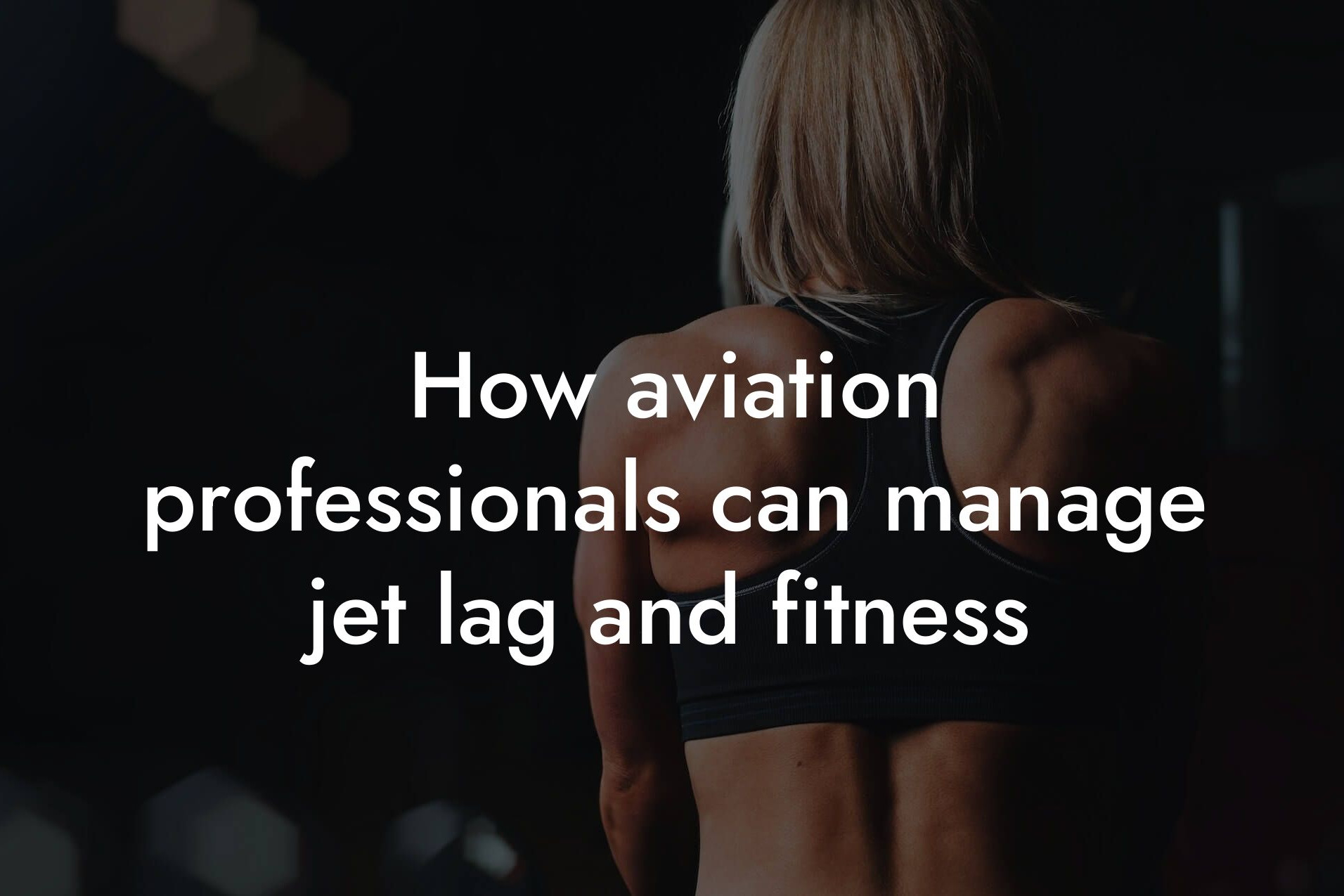As a high-earning professional, you understand the importance of maintaining a healthy physique, body fat percentage, and overall well-being. At Tano Performance Group, we're committed to providing you with the tools and knowledge you need to optimize your physical performance. When it comes to long flights, it can be challenging to prioritize your health, but with the right nutrition strategies, you can stay on top of your game even at 30,000 feet.
Table of Contents
Hydration is Key
Dehydration is a common issue on long flights, and it can lead to fatigue, headaches, and decreased productivity. The air on planes is dry, and the pressure can cause your body to lose water more quickly. To combat this, make sure to drink plenty of water before, during, and after your flight. Aim to drink at least 8-10 glasses of water per day, and avoid sugary drinks and caffeine, which can exacerbate dehydration.
Choose Snacks Wisely
Airline snacks are often high in salt, sugar, and unhealthy fats. Instead, pack your own snacks, such as nuts, seeds, dried fruits, and energy bars. Look for snacks that are high in protein and fiber to keep you full and satisfied. Avoid snacks that are high in added sugars, artificial flavors, and preservatives.
Avoid Processed Foods
Processed foods are often high in unhealthy fats, added sugars, and sodium. On a long flight, it's best to avoid these foods, which can cause bloating, fatigue, and digestive issues. Opt for whole, unprocessed foods like fruits, vegetables, lean proteins, and whole grains. These foods will provide you with sustained energy and support your overall health.
Bring Your Own Meals
If possible, bring your own meals on the plane. This will ensure that you're getting the nutrients you need to stay healthy and energized. Look for meals that are high in protein, fiber, and healthy fats, such as salads with grilled chicken, quinoa bowls with roasted vegetables, and whole grain wraps with lean turkey. Avoid meals that are high in added sugars, salt, and unhealthy fats.
Consider Your Electrolytes
Electrolytes are essential for maintaining proper hydration and supporting your body's functions. On a long flight, it's easy to become depleted of electrolytes, which can lead to fatigue, muscle cramps, and dizziness. Consider bringing electrolyte-rich drinks or supplements, such as coconut water or electrolyte tablets, to help replenish your stores.
Be Mindful of Food Allergies and Intolerances
If you have a food allergy or intolerance, it's crucial to be mindful of what you eat on a long flight. Pack your own snacks and meals that are safe for your dietary needs, and avoid consuming foods that can trigger an allergic reaction or exacerbate an intolerance. Don't be afraid to ask your flight attendants for assistance or guidance if you need it.
Stay Active
Sitting for long periods can lead to stiffness, fatigue, and decreased circulation. To combat this, make sure to get up and move around the plane every hour or so. Do some stretching exercises, walk up and down the aisle, or do some seat stretches to keep your blood flowing. This will help reduce the risk of blood clots, improve your circulation, and boost your energy levels.
Plan Ahead
Before your flight, research the airline's food options and plan your meals accordingly. If you have specific dietary needs or restrictions, inform the airline ahead of time so they can accommodate you. Pack your own snacks and meals, and consider bringing a refillable water bottle to stay hydrated. By planning ahead, you can ensure that you're getting the nutrients you need to stay healthy and energized on your long flight.
Frequently Asked Questions
What are the risks of not eating well on a long flight?
Not eating well on a long flight can lead to fatigue, bloating, and dehydration, which can negatively impact your overall health and wellbeing. Additionally, poor nutrition can weaken your immune system, making you more susceptible to illnesses and jet lag. As a high-earning professional, you understand the importance of maintaining your physical appearance and overall health, and poor nutrition on a long flight can hinder your progress.
Why is it challenging to eat healthy on a long flight?
Eating healthy on a long flight can be challenging due to limited food options, lack of access to healthy snacks, and the temptation of unhealthy airport food. Furthermore, the high altitude and dry air on a plane can affect your appetite and digestion, making it difficult to make healthy food choices.
What are some healthy snack options for long flights?
Some healthy snack options for long flights include nuts, seeds, dried fruits, energy bars, and jerky. You can also consider packing your own snacks, such as carrot sticks with hummus, apple slices with almond butter, or trail mix with dried cranberries and dark chocolate chips.
Can I bring my own food on a plane?
Yes, you can bring your own food on a plane, but it's essential to check with your airline for their policies and guidelines. Some airlines may have restrictions on certain types of food or require you to dispose of food waste properly. It's also important to consider the storage and handling of your food to avoid any contamination or spoilage.
What are some tips for staying hydrated on a long flight?
To stay hydrated on a long flight, drink plenty of water throughout the flight, avoid caffeinated and sugary drinks, and consider bringing an empty water bottle through security to refill on the plane. You can also opt for herbal teas or coconut water as alternative hydration options.
How can I avoid bloating on a long flight?
To avoid bloating on a long flight, avoid carbonated drinks, limit your intake of salty and processed snacks, and opt for foods high in fiber and protein. You can also consider taking a probiotic supplement or eating probiotic-rich foods like yogurt or kefir to support your digestive health.
What are some healthy meal options for long flights?
Some healthy meal options for long flights include grilled chicken or fish with brown rice and steamed vegetables, lentil or vegetable soup, or a salad with lean protein and whole grains. You can also consider pre-ordering a special meal with your airline or packing your own meals, such as sandwiches or wraps with lean fillings and whole grain wraps.
Can I request a special meal on a long flight?
Yes, you can request a special meal on a long flight, such as a vegetarian, vegan, gluten-free, or low-sodium meal. However, it's essential to notify your airline in advance, usually 24-48 hours before your flight, to ensure they can accommodate your request.
How can I stay energized on a long flight?
To stay energized on a long flight, eat small, frequent meals or snacks, avoid sugary and caffeinated drinks, and opt for foods high in protein and complex carbohydrates. You can also consider taking a vitamin or energy supplement, such as vitamin B or CoQ10, to support your energy levels.
What are some tips for managing jet lag?
To manage jet lag, stay hydrated, adjust your sleep schedule before your trip, and avoid heavy meals and caffeine close to bedtime. You can also consider taking a melatonin supplement or using a sleep mask and earplugs to improve your sleep quality.
Can I exercise on a long flight?
While it may be challenging to exercise on a long flight, you can still incorporate some simple stretches and movements to reduce stiffness and improve circulation. Try doing some seat stretches, ankle rotations, and wrist extensions, or take a short walk up and down the aisle.
How can I reduce stress on a long flight?
To reduce stress on a long flight, practice deep breathing exercises, listen to calming music or nature sounds, and consider taking a natural stress-relief supplement like ashwagandha or chamomile. You can also bring a travel-sized meditation or yoga guide to help you relax.
What are some healthy beverage options on a long flight?
Some healthy beverage options on a long flight include water, herbal tea, green tea, and coconut water. You can also consider bringing your own beverages, such as a refillable water bottle or a thermos of herbal tea.
Can I bring my own coffee or tea on a plane?
Yes, you can bring your own coffee or tea on a plane, but be sure to check with your airline for their policies on hot liquids. You can also consider bringing a travel-sized coffee or tea maker to brew your own beverages on the plane.
How can I avoid fatigue on a long flight?
To avoid fatigue on a long flight, get plenty of rest before your trip, stay hydrated, and avoid heavy meals and caffeine close to bedtime. You can also consider taking a natural energy supplement like vitamin B or CoQ10 to support your energy levels.
What are some healthy airport food options?
Some healthy airport food options include salads, grilled chicken or fish sandwiches, and fresh fruit or cut vegetables with hummus. You can also consider packing your own snacks or meals to avoid relying on airport food.
Can I pre-order a meal on a long flight?
Yes, many airlines offer pre-order meal options for long flights. This can be a great way to ensure you get a healthy meal option that meets your dietary needs and preferences.
How can I stay comfortable on a long flight?
To stay comfortable on a long flight, wear loose, comfortable clothing, bring a travel pillow or blanket, and consider upgrading to a seat with more legroom. You can also bring a pair of compression socks to improve circulation and reduce swelling.
What are some natural remedies for motion sickness?
Some natural remedies for motion sickness include ginger, peppermint, and acupressure bands. You can also consider taking a natural supplement like vitamin B6 or melatonin to help alleviate symptoms.
Can I bring my own utensils and plates on a plane?
Yes, you can bring your own utensils and plates on a plane, but be sure to check with your airline for their policies on reusable items. This can be a great way to reduce waste and ensure you have the utensils you need for your meals.
How can I stay entertained on a long flight?
To stay entertained on a long flight, bring a book or e-reader, listen to music or podcasts, or watch movies or TV shows on your tablet or laptop. You can also consider bringing a travel-sized puzzle or game to keep your mind engaged.
What are some tips for sleeping on a long flight?
To sleep on a long flight, wear comfortable clothing, bring a travel pillow or blanket, and consider taking a natural sleep aid like melatonin. You can also try to sleep during the plane's designated sleep periods or use a sleep mask and earplugs to block out distractions.
Can I bring my own essential oils on a plane?
Yes, you can bring your own essential oils on a plane, but be sure to check with your airline for their policies on liquids and fragrances. Essential oils can be a great way to promote relaxation and reduce stress on a long flight.
Here are some related articles you might love...
- How to maintain bone density with frequent flying
- The benefits of DEXA scans for aviation professionals
- How aviation professionals can manage jet lag and fitness
- Staying fit while managing irregular flight schedules
- Balancing in-flight duties with personal fitness goals
- Managing stress and staying fit in the aviation industry
- The impact of physical health on flight safety
- The role of physical fitness in maintaining flight readiness
- Quick workouts for pilots and flight attendants during layovers
Zak Faulkner
Zak Faulkner is a leading authority in the realm of physical health and body composition analysis, with over 15 years of experience helping professionals optimise their fitness and well-being. As one the experts behind Tano Performance Group, Zak has dedicated his career to providing in-depth, science-backed insights that empower clients to elevate their physical performance and overall health.
With extensive knowledge of DEXA technology, Zak specializes in delivering comprehensive body assessments that offer precise data on body fat, muscle mass, bone density, and overall physique. His expertise enables individuals to make informed decisions and achieve their fitness goals with accuracy and confidence. Zak’s approach is rooted in a deep understanding of human physiology, combined with a passion for helping clients unlock their full potential through personalised strategies.
Over the years, Zak has earned a reputation for his commitment to excellence, precision, and client-focused service. His guidance is trusted by top professionals who demand the best when it comes to their health. Whether advising on fitness programs, nutritional strategies, or long-term wellness plans, Zak Faulkner’s insights are a valuable resource for anyone serious about taking their health and fitness to the next level.
At Tano Performance Group, Zak continues to lead our Content Team revolutionising how professionals approach their physical health, offering unparalleled expertise that drives real results.




